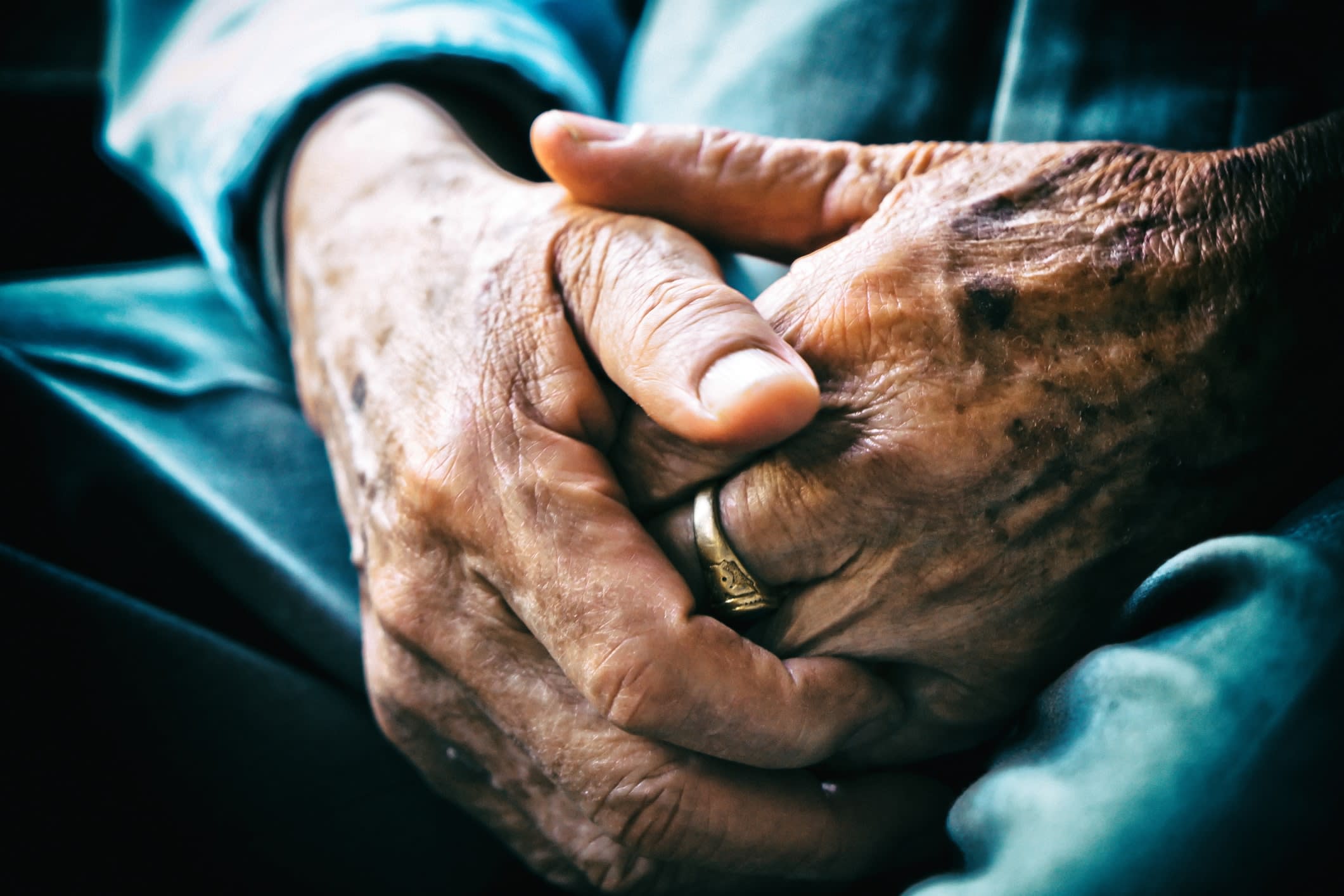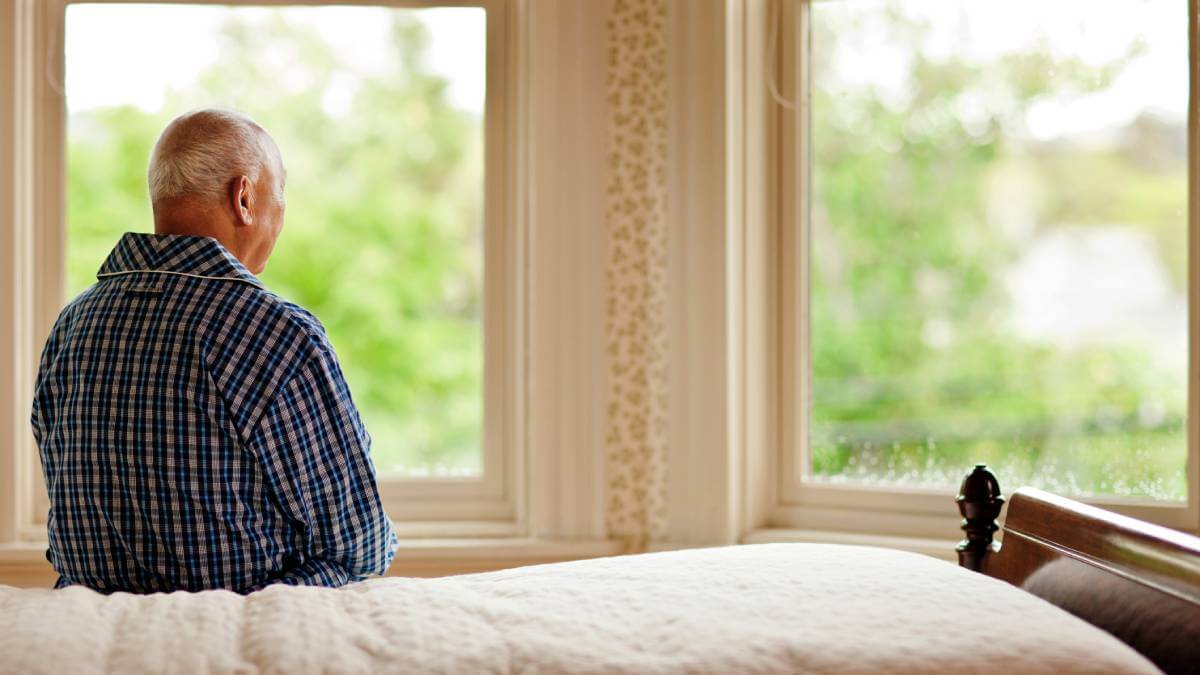Bella* likes to joke she’s “old but still naughty”.
Bella, in her early 80s, has lived alone since her husband passed away almost 20 years ago. Her relatives are all scattered across Australia, and she spent another festive season by herself.
She’s lost count of how many times she’s been alone during the holidays.
Bella feels very lonely, but doesn’t talk about it with her loved ones. She describes loneliness as a “painful thing that gnaws at you”; a feeling that constantly reminds you that you have “no company”.
Bella is participating in our ongoing study of social activities and wellbeing among older people (aged over 65) who receive aged care support**. Her experience of loneliness is not unique.
Loneliness isn’t a universal occurrence in later life, but tends to affect older people who live alone or in care homes while dealing with health issues that limit their opportunities for social connections.
Due to back pain, Bella’s mobility is very restricted. She tries to go out at least once a week on her walker. Yet, lately, the stairs have become her “public enemy number one”.
As she doesn’t get many visitors, she relies on her phone to be in touch with the outside world. The phone helps but sometimes it’s “not enough”.
Taking the opportunity to say hello and have a chat with someone in your neighbourhood like Bella can mean a lot to them, and doesn’t cost you anything but a little bit of time.
Loneliness is a public health issue
In 2023, the US Surgeon General declared loneliness as a public health crisis.
This declaration echoed the pioneering steps taken by the UK in 2018 when appointing the world”s first Minister for Loneliness, followed by Japan in 2021.
Loneliness has become a serious public concern due to its harmful effects on the health and wellbeing of individuals and communities.
For example, loneliness causes deep emotional pain and increases the risk of depression, dementia, and cardiovascular disease in later life. It’s also linked to social exclusion and disengagement.
Loneliness is a social issue
Our research shows loneliness isn’t just an individual issue; it’s a social issue, too.
This means it’s primarily felt by the individual, but it’s linked to social contexts.
Firstly, loneliness relates to a lack of meaningful social relationships. Secondly, we live in more individualistic societies that praise independence and self-sufficiency. Thirdly, there’s social stigma about admitting to being lonely.
Older people in our studies don’t tell their families and friends they feel lonely, because of how that might negatively impact their sense of dignity. They don’t want to be seen as a failure or a burden.
Our participants can already feel stigmatised for being old, frail, or dependent on care. Admitting to feeling lonely brings another layer of stigma that’s hard to deal with.
It’s like being back on the playground and realising that “no-one wants to play with you”, Bob*, in his late 70s and living in a care home, told us. Loneliness brings shame and embarrassment.

How we can help
Because loneliness is a social issue, we all have a role to play in addressing it.
We know older people are reluctant to disclose their loneliness. They don’t want to be labeled “lonely oldies”, as Bella pointed out.
So, how can we help?
Here are some valuable suggestions from our participants:
- Check on your neighbours, especially if they live alone. Take the time to check on your older neighbours, particularly during festive seasons and public holidays. These times can be a reminder of an absence of company for those experiencing loneliness.
- Engage in meaningful conversations. When you reach out, go beyond the usual quick chitchat. Take the time to listen and engage in deeper, more meaningful conversations. Sometimes, a good conversation can be a lifeline for someone feeling lonely.
- Involve them. Check on your older family members, friends, and neighbours in a way that makes them feel included. Show that you value their opinions by, for example, asking for their input on things such as gift choices, outfit selections, or event planning. It’s a simple way to make them feel appreciated.
- Stay connected. While face-to-face interaction is often preferred, don’t underestimate the power of a phone call, a letter, or even chatting online for a little bit longer than usual. The extra time in conversation – and through different media – can make a difference.
- Link with community resources. Exploring other opportunities to socialise could be a topic of interest. Offer to help explore council activities or social initiatives that match their interests. They may also appreciate you attending for the first time with them. This can be a way of fostering new connections with those who share similar hobbies or passions, from programs in public libraries such as this knitting group to Men’s Sheds or the University of the Third Age. Looking for services such as the Seniors Connected Program or requesting a volunteer visitor to provide regular visits can also create opportunities for sustained interaction and companionship.
We can all contribute
Combating loneliness is a collective effort to which we can all contribute.
But our commitment to address loneliness should never have a season. It must be a year-round effort.
We must also work collectively to destigmatise loneliness, and create a safe space to talk about loneliness. This will ensure Bella and Bob, and countless others like them, can openly share their feelings without fear of shame or embarrassment.
* Not their real names.
** The authors are conducting this survey for the Australian Department of Health and Aged Care.
This article was first published on Monash Lens. Read the original article.
Do you keep an eye out for lonely friends and family? Why not share your experience in the comments section below?
Also read: Simple tips and tricks for when you are feeling old


At 76 and still married, my husband is 86 I wouldn’t say I feel lonely. More disappointed.
Nearly 10 years ago we moved from being relatively close to my two sisters to a 2 hour drive away in the country. The ONLY time either of them have visited us was for my daughter’s 40th birthday .. she is about to turn 49! It is always me who travels to see them a couple of times a year.
Sure, there is the phone calls but is not the same as actually seeing a person and being able to give them a hug and spend time with them.
Rant over.